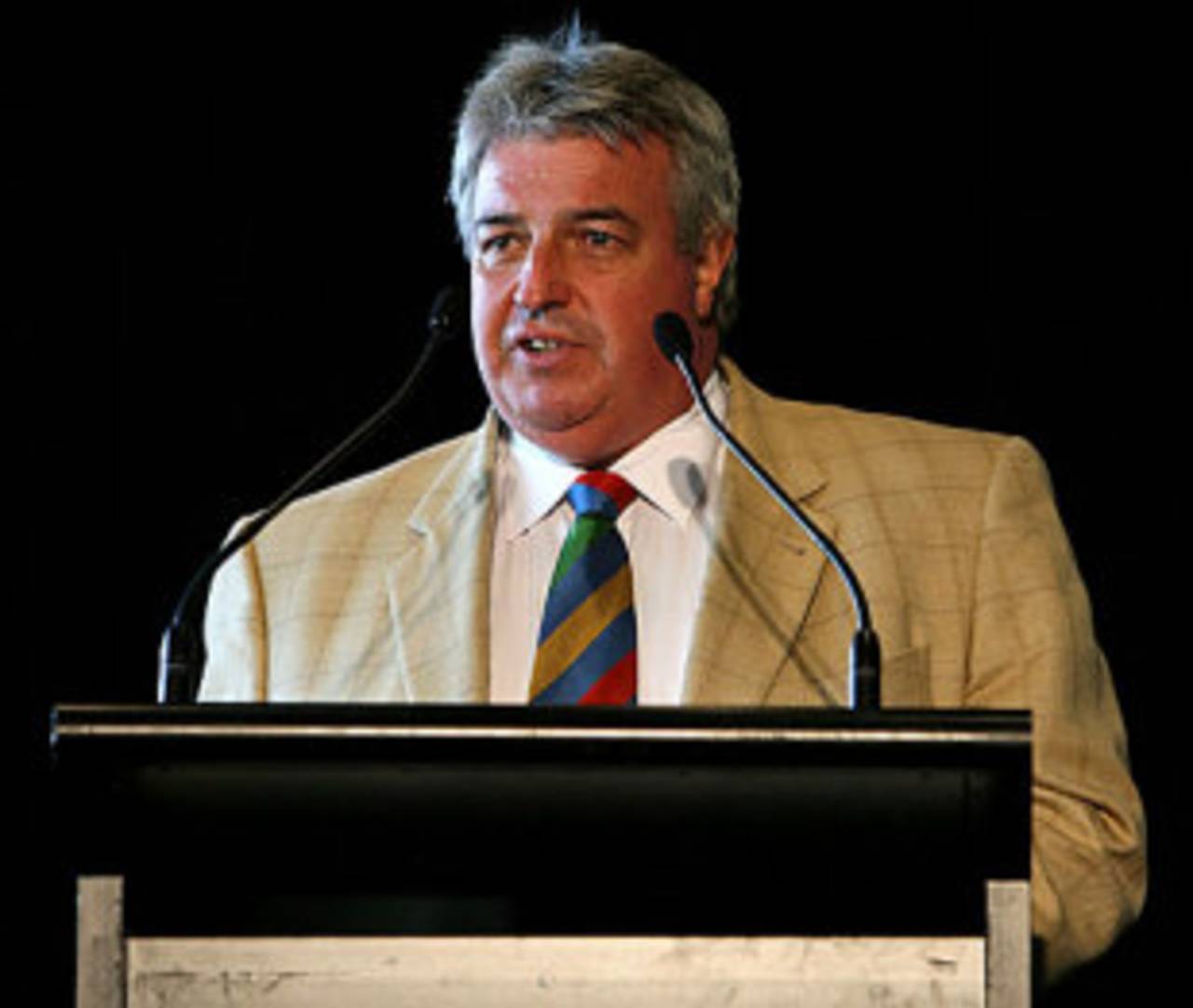CA chairman Jack Clarke wary of India's clout
Jack Clarke, Cricket Australia's chairman, will be more cautious in his dealings with India following its role in dismissing John Howard as the ICC's vice-presidential candidate in Singapore
Peter English
30-Jun-2010

Jack Clarke: "In any business model where a company has 75% of the income it is not ideal, but that's not India's fault" • Getty Images
Jack Clarke, Cricket Australia's chairman, will be more cautious in his dealings with India following its role in dismissing John Howard as the ICC's vice-presidential candidate in Singapore. Australia has developed an increasingly strong relationship with the BCCI, including developing the Champions League Twenty20, but the board was part of the group that blocked Howard's passage.
A frustrated Clarke said India wasn't the only country to oppose the joint recommendation of Australia and New Zealand at the meetings in Singapore over the past two days. However, the decision by the ICC's board to request another candidate has altered the environment.
"You hope it doesn't affect your relationship but it obviously puts a block there for a while and makes you wary, I suppose," he said. "But we have to deal with all the member countries of the ICC ... We'll have a board meeting in October and there's no point not rolling up."
Zimbabwe and South Africa were the original opponents to Howard's nomination, raising their protests outside an ICC meeting in Dubai in April, but a group of six members signed a letter on Tuesday night expressing their desire to veto the recommendation. The list didn't include Zimbabwe, but India's strength allowed them to bring Pakistan, Sri Lanka and Bangladesh on board, highlighting a return to the days when the Asian and African countries voted en-masse.
Despite seeing Howard "knocked off" by the alliance, Clarke refused to say the enormous power of the bloc was unhealthy for the future of the game. "In any business model where a company has 75% of the income it is not an ideal model, but that's not India's fault they do that," he said. "With distributions that go to all the countries, [India] earn it and distribute it evenly among nine of the Test-playing countries and the Associates.
"It is a powerful bloc, it's a reality of life. But you've also got to remember that until 1992 Australia and England had a power of veto [in ICC meetings]."
There is a strong feeling that if India had supported Howard he would have had no problems in becoming the deputy to Sharad Pawar, the incoming ICC president. "I can't speculate about that," Clarke said. "I've been on the board for 18 months, been to seven meetings, I think the bloc vote that was once there before my time doesn't exist at the same level."
A BCCI source told AFP there was "nothing personal against Howard". "But we do accept the argument that only a man with previous experience in cricket administration should head the ICC. Howard was not involved with Cricket Australia at any time."
Peter English is the Australasia editor of Cricinfo